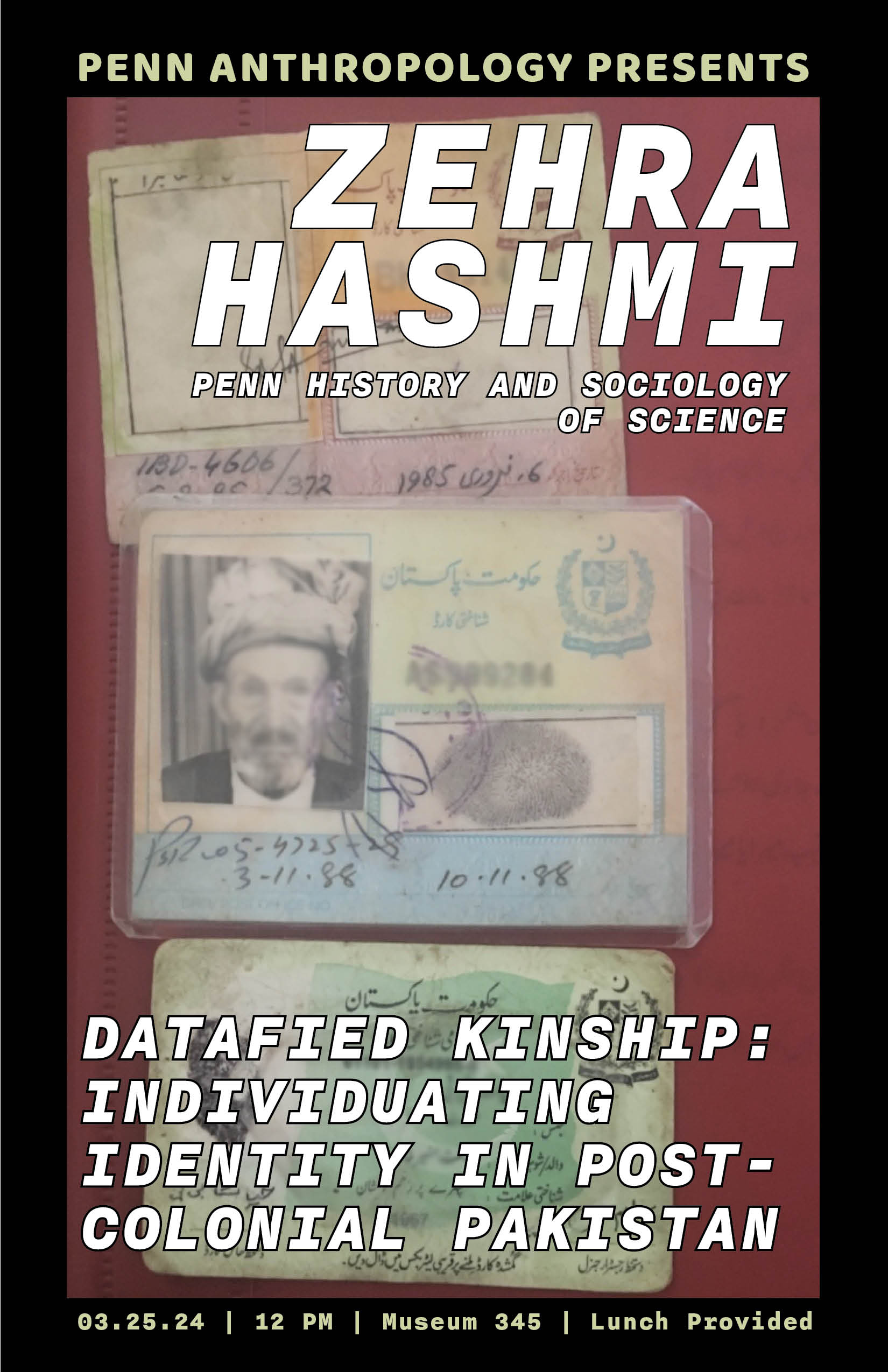Monday, March 25, 2024 - 12:00pm
Penn Museum 345

This talk examines how and why Pakistan’s national biometric-based identification regime came to use an individual’s blood relations to construct and track uniquely identified individual. Through the concept of datafied kinship, it proposes that the uses of kin networks in Pakistan’s identity database, as information, can reconfigure our understanding of contemporary identification practices at large: individual identity is generated and tracked through relatedness, not unique bodily characteristics, or biometrics alone. To demonstrate this, it first examines how the database design works to construct identity through kin, and specifically how it excludes individuals on the basis of their kin through technological categories such as that of the “family intruder.” Second, it shows how this mode of individual identification differs and departs from the longstanding classificatory schemas that were so foundational to taxonomizing identity along the lines of caste, tribe, and religion in South Asia. It traces this diverging logic—between classification and individuation—to the emergence of individuating technologies in 1970s Pakistan, in the aftermath of civil war between East Pakistan and West Pakistan and during the escalating Cold War in the region. In so doing, it illustrates how the political stakes of Pakistan’s identification regime lie not only in its new possibilities for surveillance, a function of its individuating and tracking technology, or its classificatory refusal, but their interconnections.

 Department of Anthropology
Department of Anthropology